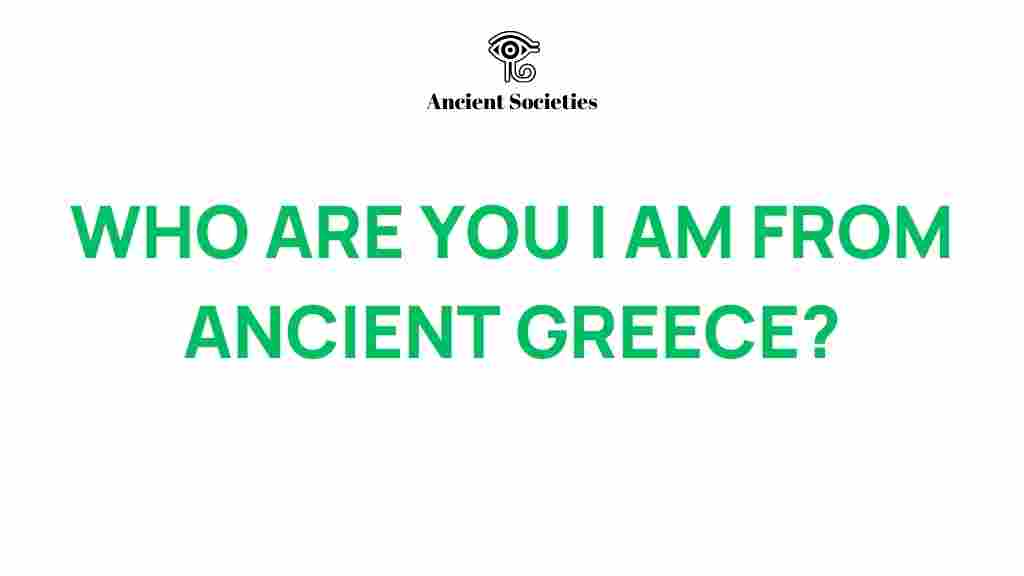Unveiling the Enigmatic Legacy of Ancient Greece
Ancient Greece is often regarded as the cradle of Western civilization, a remarkable period that has profoundly influenced modern society in various aspects, including philosophy, democracy, art, and mythology. This article aims to explore the multifaceted heritage of Ancient Greece, shedding light on its culture, history, and its lasting impact on contemporary life.
The Foundations of Ancient Greek Civilization
The civilization of Ancient Greece emerged around the 8th century BC and flourished for several centuries. It is characterized by a rich tapestry of city-states, each with its governance, culture, and traditions. The most prominent city-states included Athens, Sparta, and Corinth, each contributing uniquely to the overall legacy of Ancient Greece.
- Athens: Known as the birthplace of democracy and philosophy.
- Sparta: Renowned for its military prowess and austere lifestyle.
- Corinth: A hub of commerce and culture.
Philosophy: The Intellectual Backbone
One of the most significant contributions of Ancient Greece to the world is its philosophy. Thinkers like Socrates, Plato, and Aristotle laid the groundwork for Western thought. Their inquiries into ethics, politics, and metaphysics continue to resonate today.
- Socrates: Introduced the Socratic method, emphasizing dialogue and questioning.
- Plato: Founded the Academy in Athens and wrote works like “The Republic.”
- Aristotle: Made significant contributions across various fields, including logic, biology, and ethics.
Democracy: The Birthplace of Political Ideals
Ancient Greece is often celebrated for the introduction of democracy, particularly in Athens. The concept of citizens participating in governance has shaped modern political systems around the globe.
Key features of Athenian democracy included:
- Direct participation of citizens in decision-making.
- Assembly of citizens to discuss and vote on legislation.
- Use of a lottery system for selecting officials to ensure equal opportunity.
Mythology: The Stories That Shaped Culture
The mythology of Ancient Greece is a fascinating aspect of its culture, featuring a pantheon of gods and goddesses, heroes, and mythical creatures. These stories were not just entertainment; they served to explain natural phenomena, human behavior, and historical events.
Some of the most notable figures in Greek mythology include:
- Zeus: King of the gods, ruler of Mount Olympus.
- Athena: Goddess of wisdom and warfare.
- Hercules: A legendary hero known for his incredible strength and twelve labors.
Culture: A Rich Tapestry of Traditions
The culture of Ancient Greece was diverse and vibrant, encompassing various aspects of life, including festivals, sports, and daily practices. The Olympic Games, held every four years, celebrated athletic prowess and unity among the Greek city-states.
In addition to sports, the arts flourished in Ancient Greece:
- Theater: The birthplace of Western drama, with playwrights like Sophocles and Euripides.
- Literature: Epic poems like “The Iliad” and “The Odyssey” by Homer.
- Music: Integral to religious and social events, often performed with lyres and aulos.
Art and Architecture: Aesthetic Innovations
The art and architecture of Ancient Greece are celebrated for their beauty and innovation. The Greeks excelled in sculpting, pottery, and monumental architecture, creating works that have inspired countless generations.
Key architectural styles included:
- Doric: The simplest and most robust style, exemplified by the Parthenon.
- Ionic: Characterized by its scroll-like volutes, seen in the Temple of Athena Nike.
- Corinthian: The most ornate style, often used in grand structures.
History: A Timeline of Influence
The history of Ancient Greece is marked by significant events and transformations:
- Mycenaean Period (1600-1100 BC): Early Greek civilization known for its palatial states.
- Dark Ages (1100-800 BC): A period of decline following the collapse of Mycenaean civilization.
- Classical Period (5th-4th centuries BC): The height of Athenian power, cultural flourishing, and the birth of democracy.
- Hellenistic Period (323-30 BC): The spread of Greek culture across the Mediterranean following Alexander the Great’s conquests.
Heritage: The Legacy of Ancient Greece Today
The enduring legacy of Ancient Greece is evident in various aspects of modern life:
- Philosophy: Continues to influence contemporary thought and ethics.
- Political Systems: Modern democracies draw inspiration from Athenian practices.
- Art and Architecture: Many Western artistic movements have roots in Greek styles and techniques.
To delve deeper into the history and influence of Ancient Greece, you can visit this comprehensive resource.
Troubleshooting Common Misconceptions About Ancient Greece
As with any historical civilization, there are several misconceptions about Ancient Greece that can lead to misunderstandings:
- Mythology vs. Religion: Many people view Greek mythology as mere stories, but it was integral to the religious practices of the time.
- Democracy for All: While Athens is celebrated for democracy, it was limited to free male citizens, excluding women and slaves.
- Unity vs. Division: The Greek city-states often fought among themselves, which contradicts the notion of a unified Greece.
Conclusion
The legacy of Ancient Greece is a testament to the ingenuity and creativity of its people. From the philosophical inquiries that laid the groundwork for Western thought to the democratic practices that continue to inspire political systems worldwide, Ancient Greece remains a pivotal chapter in the story of human civilization.
As we explore our heritage, understanding the complexities and contributions of Ancient Greece allows us to appreciate the foundations of modern culture, art, and governance. By embracing this rich history, we honor the enduring influence of Ancient Greece on our lives today.
For those interested in further exploring the cultural significance of Ancient Greece, consider checking out this external link for additional insights.
This article is in the category History and created by AncientSocieties Team
